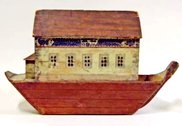Noah – Bible study activities
Movies about ‘Saving the World’
Stage 1: Make up a list
List some films about ordinary people who, in a crisis, use their skills, courage and tenacity to save themselves and others. You can choose recent films or classics. If this is a group activity, choose films most people know.
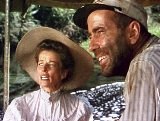
The ‘African Queen’ is an ark that saves the man and woman
Stage 2: Glance over your list
- This type of film is always fanciful, so how are the film-makers able to convince you? Is the film realistic, inspiring/uplifting, or silly? In other words, does it work?
- Why do people enjoy this sort of film?
Stage 3: Choose your favorite
- What are the central themes in this film?
- Do any of the scenes remind you of the story of Noah, or of a crisis you experienced in your own life?
- Does the film portray people we ourselves would like to be, if an emergency occurred?
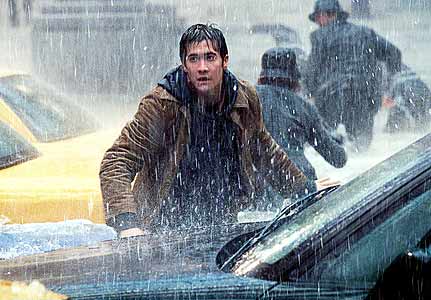
The struggle to survive in ‘The Day After Tomorrow’
Stage 4: Think about your choices
Group activity: discuss these questions, making sure everyone in the group has a chance to talk about their ideas.
Individual activity: sit down for a few minutes and focus your mind; make a quick list of your favorites; read through the Stage 3 questions, and think about your responses. Keep them in mind as you do other tasks during your day.
Movies about saving the world
- Can you name the films?
- Can you see a connection with Noah’s story?

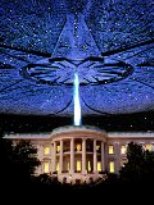


Movie quiz answers HERE (see ‘Noah’)
Can you think of other movies with a similar theme?
Living Through Catastrophe
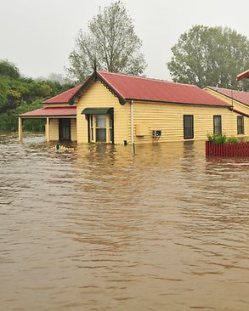 Have you ever been in any sort of natural catastrophe? Storm, flood, fire? Send your mind back to that time.
Have you ever been in any sort of natural catastrophe? Storm, flood, fire? Send your mind back to that time.
- What do you remember most vividly?
- What were your emotions?
- Did you pray for help at the time?
- Were you comforted by God’s presence, or did you feel alone?
Share your memories with a learning partner, or write a short account of your experience.
The Bible as our Ark
Some people say the Bible is our personal Ark, providing shelter and guidance when we are troubled by something, or in danger.
- Have you found it to be so?
- Has the Bible helped you?
- Were there any particular stories, quotations or Books of the Bible that gave you comfort and strength?
If so, make a 1-page list you can refer to from time to time.
If not, read some sections from the Book of Proverbs, the Book of Psalms or Ecclesiastes (at right), and see if you can find something that would help you.
Paintings of Noah
Stage 1
Read Noah’s story at Bible People – Noah
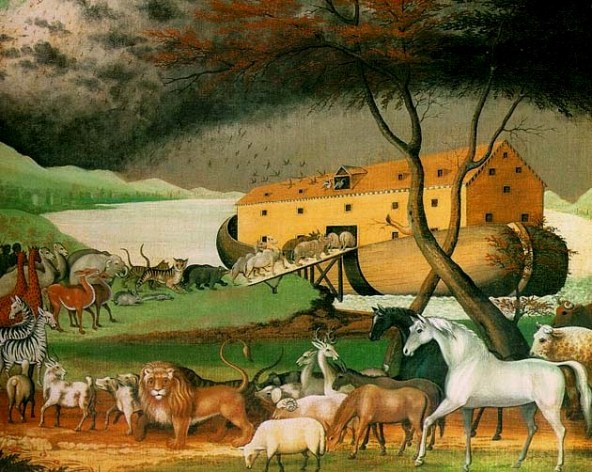
Noah: paintings has famous artworks of Noah
Stage 2
Go to Noah: paintings.
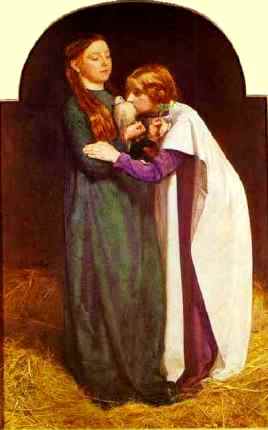
The Return of the Dove, Millais
Scroll through the paintings from first to last. Notice how modern painters have used the dark surging sea to suggest God’s power and anger.
- Which part of the story of Noah has been the most popular with artists?
- Would this have been your choice?
Artists paint what they want to, but they also paint with their audience in mind.
- Look at the paintings again.
- Who is the painting directed at?
- Explain why you think this is so.
Stage 3
If you have chosen some other aspect of the story as your favorite, ask yourself why this other incident appeals to you more than the scene favored by the artists.
Spend some time quietly thinking about your response.
Famous Quotes from Noah’s Story
- ‘But Noah found favor in the sight of the Lord.’ Genesis 6:8
 ‘I will send rain on the earth for forty days and forty nights…‘ Genesis 7:4
‘I will send rain on the earth for forty days and forty nights…‘ Genesis 7:4 - ‘…the Lord said in his heart “I will never again curse the ground because of humankind.’ Genesis 8:21
- “Be fruitful and multiply, and fill the earth.” Genesis 9:1
Question: What do these four quotes tell you about the narrator’s image of God?
Focus questions
1. What are the most interesting moments in Noah’s story?
2. If you were in the story, which person would impress you? Why?
3. What is God’s interaction with the main characters? What does this tell you about the narrator’s image of God? Do you agree with this image?
4. The narrator/editor has chosen to tell some things and leave other things out. What has been left out of the story that you would like to know?
5. Are the characteristics and actions of the people in the story still present in the world? How is the story relevant to modern life, especially your own?
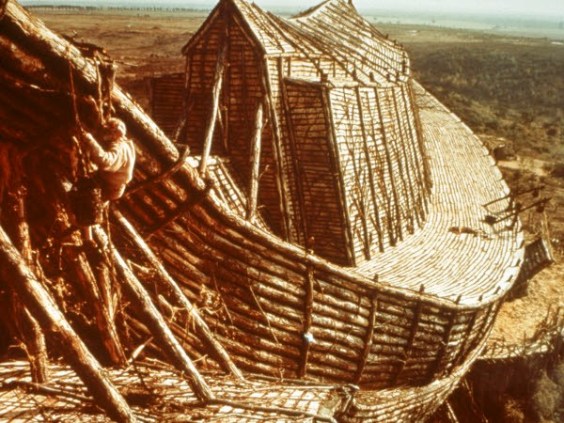
Reconstruction of the Ark built by Noah, from the movie ‘The Bible’
Search the Site
© Copyright 2006
Elizabeth Fletcher



